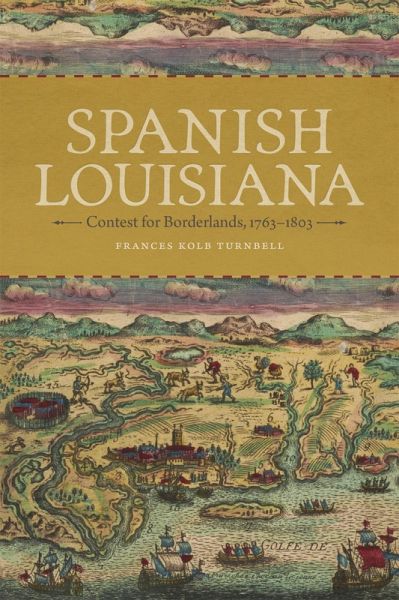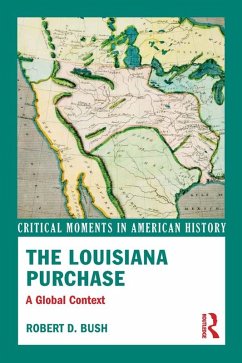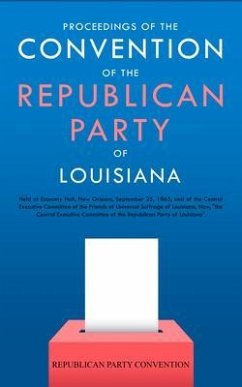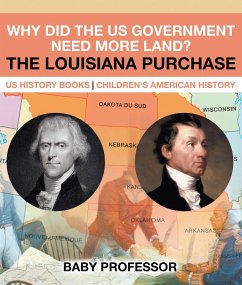
Spanish Louisiana (eBook, ePUB)
Contest for Borderlands, 1763-1803
Versandkostenfrei!
Sofort per Download lieferbar
15,95 €
inkl. MwSt.
Weitere Ausgaben:

PAYBACK Punkte
8 °P sammeln!
Frances Kolb Turnbell's study of Spanish colonial Louisiana is the first comprehensive history of the colony. It emphasizes the Lower Mississippi valley's status as a borderland contested by empires and the region's diverse inhabitants in the era of volatility that followed the Seven Years' War. As Turnbell demonstrates, the Spanish era was characterized by tremendous transition as the colony emerged from the neglect of the French period and became slowly but increasingly centered on plantation agriculture. The transformations of this critical period grew out of the struggles between Spain and...
Frances Kolb Turnbell's study of Spanish colonial Louisiana is the first comprehensive history of the colony. It emphasizes the Lower Mississippi valley's status as a borderland contested by empires and the region's diverse inhabitants in the era of volatility that followed the Seven Years' War. As Turnbell demonstrates, the Spanish era was characterized by tremendous transition as the colony emerged from the neglect of the French period and became slowly but increasingly centered on plantation agriculture. The transformations of this critical period grew out of the struggles between Spain and Louisiana's colonists, enslaved people, and Indians over issues related to space and mobility. Many borderland peoples, networks, and alliances sought to preserve Louisiana as a flexible and fluid zone as the colonial government attempted to control and contain the region's inhabitants for its own purposes through policy and efforts to secure loyalty and its own advantageous alliances.
Turnbell first examines the period from 1763 through the American Revolution, when the Mississippi River was a boundary between empires. The river's designation as an imperial border ran counter to the topography of North America and counter to the practices of the valley's inhabitants, who employed its waterways to trade, communicate, migrate, and survive. Turnbell pays special attention to the Revolt of 1768, the burgeoning trade along the Mississippi prior to the American Revolution that involved British and American merchants, Spanish preparation for war, and the crucial involvement of the borderland's diverse inhabitants as the war played out on the Lower Mississippi.
Turnbell then explains how the activity of borderland peoples evolved after the Revolutionary War when the Lower Mississippi was no longer an imperial boundary. She considers the instability and fluidity of postwar years in Louisiana, American trade and migration, Louisiana's experience of the Age of Revolutions-from pro-French sentiments to plans for rebellion among the enslaved-and ultimately, Spain's political demise in the Mississippi River valley.
Turnbell first examines the period from 1763 through the American Revolution, when the Mississippi River was a boundary between empires. The river's designation as an imperial border ran counter to the topography of North America and counter to the practices of the valley's inhabitants, who employed its waterways to trade, communicate, migrate, and survive. Turnbell pays special attention to the Revolt of 1768, the burgeoning trade along the Mississippi prior to the American Revolution that involved British and American merchants, Spanish preparation for war, and the crucial involvement of the borderland's diverse inhabitants as the war played out on the Lower Mississippi.
Turnbell then explains how the activity of borderland peoples evolved after the Revolutionary War when the Lower Mississippi was no longer an imperial boundary. She considers the instability and fluidity of postwar years in Louisiana, American trade and migration, Louisiana's experience of the Age of Revolutions-from pro-French sentiments to plans for rebellion among the enslaved-and ultimately, Spain's political demise in the Mississippi River valley.
Dieser Download kann aus rechtlichen Gründen nur mit Rechnungsadresse in A, D ausgeliefert werden.













